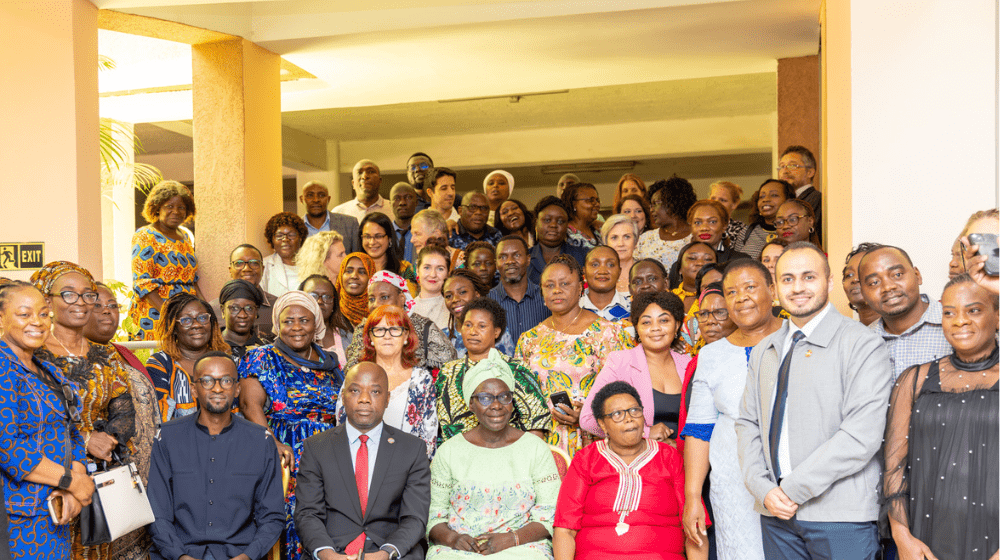From 24-26 September 2024, midwives from across Africa and the Eastern Mediterranean gathered in Kigali, Rwanda, for the first International Confederation of Midwives (ICM) Africa and Eastern Mediterranean Region Conference since 2019. Under the theme Midwives 360 : Associations for a Changing World , the regional conferences sought to support midwives in developing the skills needed to build and train strong midwifery associations, advocate for the profession, and strengthen regional networks. Over 350 midwives from 66 countries attended, including 44 Rwandan midwives that UNFPA supported to participate.
On September 23, in the lead-up to the ICM, UNFPA hosted a pre-conference workshop which brought together midwives, healthcare leaders, and key stakeholders to address Postpartum Hemorrhage (PPH) management. PPH remains the leading cause of maternal deaths worldwide, making the prevention and management of this condition critical to improving maternal health outcomes in Africa.
The workshop was designed to equip midwives with the latest evidence-based practices for PPH management. Representatives from WHO and UNFPA shared updates on global PPH guidelines, while midwives from various countries engaged in collaborative dialogues on policy advocacy, regulatory support, and continuous professional education. These sessions empowered midwifery professionals to lead initiatives that ensure safer birth outcomes across the continent.
The event highlighted the importance of building regional partnerships to strengthen national health systems. With participation from midwifery associations, healthcare authorities, and technical partners across Côte d'Ivoire, Uganda, Madagascar, and beyond, the workshop underscored the vital role of midwives in advancing maternal health care policies and ensuring access to life-saving interventions. Through these efforts, UNFPA continues to be the leading supporter of the Midwifery profession to champion the cause of reducing maternal mortality and improving maternal health across Africa.
Midwifery leaders at the workshop shared their experiences and discussed how they could drive policy changes to ensure better access to life-saving tools like new uterotonics and tranexamic acid (TXA) for PPH management. The conversations focused on scaling up the use of evidence-based practices across healthcare facilities in Africa to reduce the number of women who die during childbirth.
In his remarks, Dr. Olugbemiga Adelakin, UNFPA Rwanda Representative, underscored the pivotal role midwives play in maternal health.
Midwives, as frontline caregivers, play an indispensable role in combating this issue. Your expertise, dedication, and unwavering commitment to the health and well-being of mothers and newborns are the cornerstone of our efforts to end preventable maternal deaths. Dr. Adelakin noted.
Dr. Adelakin also reaffirmed UNFPA’s dedication to supporting midwives in Rwanda and beyond, emphasizing the importance of empowering midwives to be champions of change in their communities and countries.
I am sure this workshop will help us with the knowledge and tools to champion strategic initiatives that will directly impact PPH prevention and treatment while exploring good practices on advocacy and regulatory support, including the sort of continuous professional education that will continue to keep our skills up to to date on the cutting edge approaches that are required to forestall the menace of PPH in our countries. He added.
In Rwanda, UNFPA has long supported the training and development of midwives through various initiatives. These include simulation-based training programs that equip midwives with the practical skills needed to handle emergency situations, including PPH. In addition, UNFPA has played a pivotal role in supporting the Rwanda Association of Midwives through mentorship programs focused on enhancing Emergency Obstetric & Neonatal Care (EmONC).
To ensure the midwifery education is of high quality, UNFPA Rwanda supported the Ministry of Health to develop standardized national midwifery curricula at all levels aligned to the ICM competencies. This support includes scholarships for all levels of midwifery education including Master's and PhD, along with simulation-based training for both pre-service and in-service midwives through a mentorship program. This initiative aims to strengthen the capacity of health professionals to deliver high-quality maternal and neonatal services, thereby reducing morbidity and mortality rates in Rwanda.


